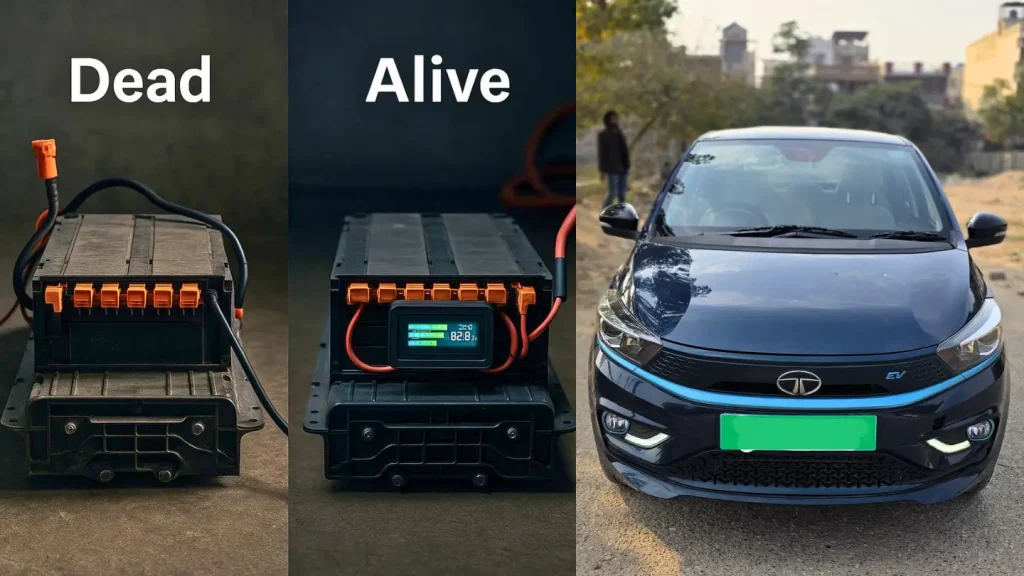Over the past 5 to 6 years, India has witnessed a significant rise in the popularity of electric vehicles (EVs), with leading manufacturers like Tata and Mahindra launching world-class EVs to meet growing demand. As this cutting-edge technology gains traction, it’s natural for customers to have concerns—especially around battery performance and replacement. One of the most common concerns among EV owners is the high cost of battery pack replacement once the warranty period ends. As the EV market continues to evolve, addressing these concerns remains crucial to building consumer confidence and accelerating adoption.
But in this case, that customer has received the battery pack for his Tigor. EV was repaired instead of its replacement at a huge cost of 6 lakh.
The post and the image have been circulated by Romesh Gupta, who is the founder and MD of Yanti, which is an Artificial Intelligence-enabled EV Battery intelligence and revival company. Posted it on LinkedIn profile. One of the customers had brought them a Tata Tigor EV sedan that could not move at all. The Yanti team checked the car and discovered that the charging port was reflecting zero volts.
The first was that they may be forced to change the battery. According to the post, Tata Motors quoted the cost of replacing the battery to be Rs 6 lakh. And since then, the team proceeded to the next safety precautionary measure and isolated the battery. The team was able to understand that internal strings of voltage and activity remained present during diagnosis. This made them have hope, and they began to dig further. They noted that there was a serious disproportion between various sets of cells, which was a pointer to a potential cause of breakdown.
Then they carried out controlled charging of the batteries, and the voltage was incremented gradually till 76.65V was reached in a 21-cell string. In the process, they did not encounter anomalous behaviour or thermal events.
The second spill was voltage balancing. They linked a 15-A active balancer to adjust voltage differences between groups of cells. These categories of cells were assigned to their appropriate upper cut-offs.
After this was achieved, the battery was left to rest further and monitored afterwards to ensure that there is minimal drift. On the following day, they tried out the battery power. They could manage the recovery of the battery pack to 84 percent.
The battery was thereafter reconnected with the BMS in the vehicle and tested in the real world and in different conditions. As it is said in the post, the battery has passed all performance tests and can now be used.
Battery repair cost is quoted as Rs 55,000 only. It is, in fact, a positive factor for the customers in that they may save the expenditure of lakhs of rupees in replacing the battery and can repair it instead. But these are a few things that are troubling us.
Yanti is a startup that is developing battery tech, as stated. What makes a person trustful enough to take his car to a third party shop to repair what is the most valuable part of an EV?
What happens in case the battery of an EV serviced by Yanti fires up? Who is responsible? The owner of manufacturing can find the easy way to lay blame on customer and save himself without any responsibility.
And do not under any circumstances use such workshops with your vehicle under the warranty because this will render the warranty on the battery invalid. Lifetime warranties of batteries are now being offered by most manufacturers and we think it is good enough alone to many customers.



